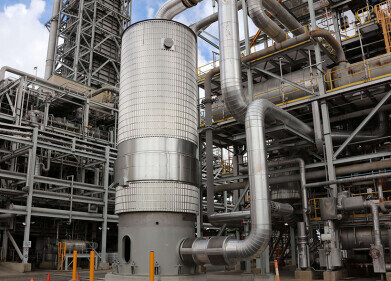Air Clean Up
Why Does Pollution Affect People With Hay Fever?
Jul 14 2015
By far the most common cause of hay fever is pollen. New research however suggests that pollution can also trigger itchy eyes, runny nose, sneezing and congestion.
What causes hay fever?
Hay fever is a condition in which your body has an allergic reaction to pollen. When pollen come into contact with your nose, eyes, mouth and throat, they irritate them and this is when the allergic reaction is triggered.
Is pollution affecting hay fever sufferers?
New research is backed up by statistics that show despite pollen counts in the UK consistently dropping, the amount of people suffering from hay fever has dramatically increased.
Studies have also indicated that the highest hay fever rates are found in cities, which have typically lower pollen counts. Rural areas, which have the highest pollen counts, have shown low hay fever rates.
What types of pollution affect hay fever suffers?
Traffic
Pollution from traffic is likely to make the symptoms of hay fever much worse. This is because vehicles traveling along our roads throw up dust into the air. This mixes the pollen and makes it airborne, which allows it to come much more easily into contact with your eyes, nose and throat.
Maureen Jenkins, clinical director of Allergy UK said:
“Pollen with high pollution levels also increases sensitivity as pollen sticks to pollution particles again, again increasing the effect it has.
“The implications are that people with asthma or hay fever should take their medication and be careful when levels are high.
“Even people who are not allergic to pollen can be really affected.”
Another problem with pollution from traffic is the amount of excessive nitrogen dioxide that could be damaging to the lungs and throat. If someone is already suffering from the symptoms of hay fever, additional problems with breathing can only exacerbate the situation.
Smoke
Those who suffer from hay fever are likely to be sensitive to cigarette smoke, particularly if they also suffer from asthma. Smoking and even breathing in second-hand smoke can irritate the lining of your airways, nose, eyes and throat. This will make your hay fever symptoms worse.
Dr Samantha Walker, director of research and policy at Asthma UK, said:
“People with asthma need to be aware that very high levels of pollen forecast may make their symptoms worse and increase their risk of a potentially fatal asthma attack.
Dr Walker also warned of the hazards of pollution during warmer periods for those who suffer from asthma and hay fever:
“Up to 80 per cent of people with asthma also have hay fever and people living in urban areas need to take special care as they are at risk of what is being referred to as 'Grey Fever' where pollen particles combine with pollution especially during periods of dry warm weather.”
How to prevent pollution making your hay fever worse
If you are driving in a polluted area such as a city, then keep car windows closed and use the air conditioning to cool the car. If dining in the evening, choose a table inside the restaurant, away from the front door.
Stick to non-smoking areas and avoid places where smoke is prevalent.
Asthmatics should check pollen and air pollution forecasts in their local area before venturing outside. They should ensure they have their preventer inhaler with them every day, as this builds resilience.
To find out if you’re being affected by air pollution read the following article, 10 Tell-Tale Signs of Air Pollution.
Events
IWA World Water Congress & Exhibition
Aug 11 2024 Toronto, Canada
Aug 25 2024 Stockholm, Sweden and online
Sep 03 2024 Mexico City, Mexico
Sep 03 2024 Mexico City, Mexico
Sep 03 2024 San Diego, CA, USA














